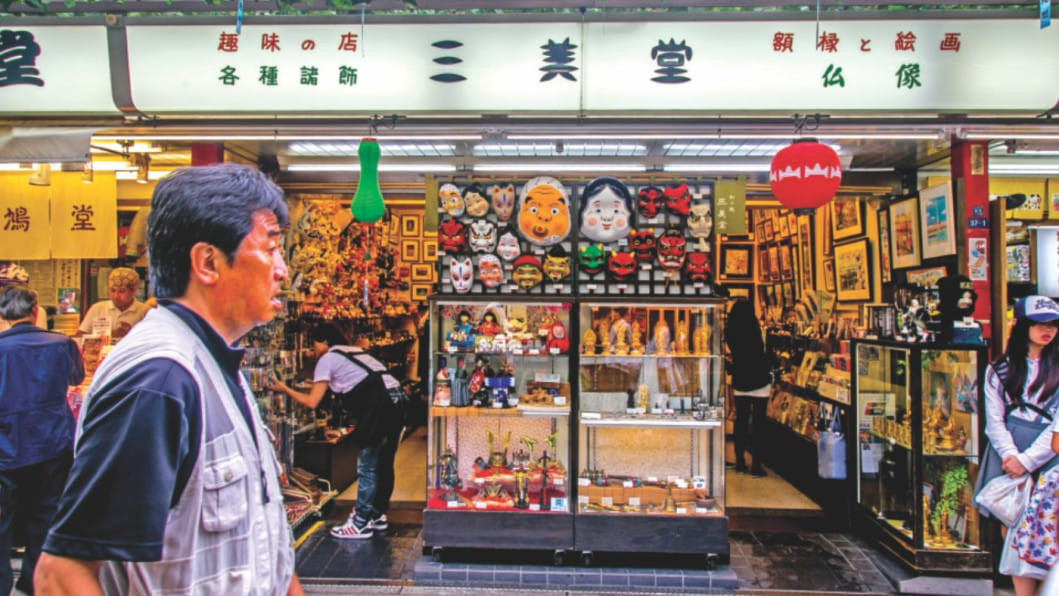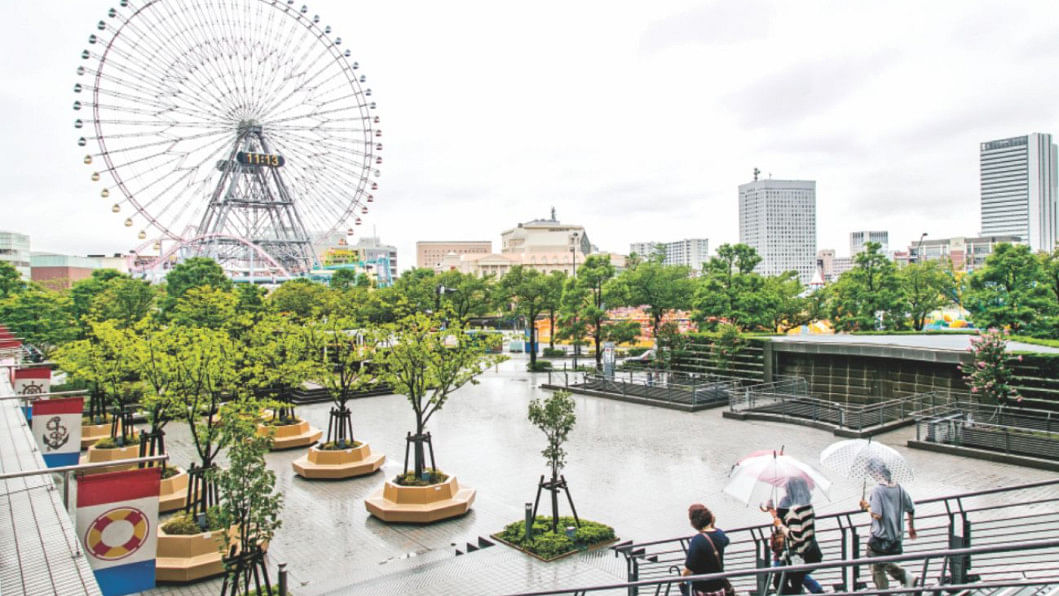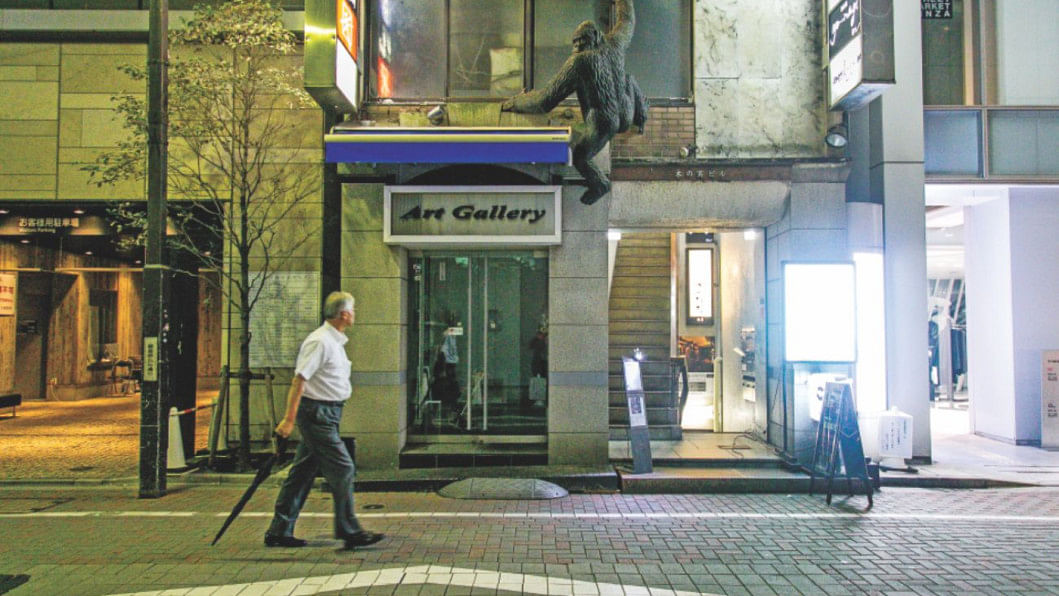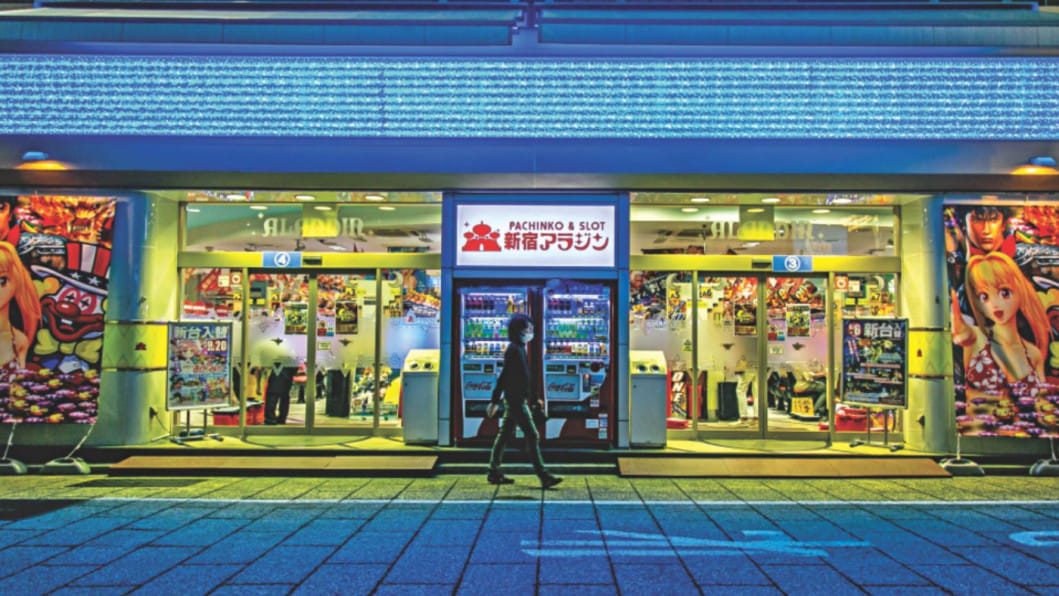Ukiyo / The Floating World
During the Tokugawa shogunate's reign (1600-1868) in Japan, the concept of “ukiyo” emerged at Yoshiwara, Edo's [now Tokyo] most important pleasure quarter. For those in the entertainment industry, the creation and maintenance of this “floating world” of pleasures was a job. For the samurai warriors and merchants, it was an escape. In order to cope with their frustration, these disparate people came together to enjoy theatre, music, calligraphy, painting, poetry, tea ceremonies and more. Despite being surrounded by exquisite beauty, the merchants and samurai of the floating world seem to have been plagued by the feeling that their lives were meaningless and unchanging. PHOTO:NIDAL ADNAN
During the Tokugawa shogunate's reign (1600-1868) in Japan, the concept of “ukiyo” emerged at Yoshiwara, Edo's [now Tokyo] most important pleasure quarter. For those in the entertainment industry, the creation and maintenance of this “floating world” of pleasures was a job. For the samurai warriors and merchants, it was an escape. In order to cope with their frustration, these disparate people came together to enjoy theatre, music, calligraphy, painting, poetry, tea ceremonies and more. Despite being surrounded by exquisite beauty, the merchants and samurai of the floating world seem to have been plagued by the feeling that their lives were meaningless and unchanging. PHOTO:NIDAL ADNAN
During the Tokugawa shogunate's reign (1600-1868) in Japan, the concept of “ukiyo” emerged at Yoshiwara, Edo's [now Tokyo] most important pleasure quarter. For those in the entertainment industry, the creation and maintenance of this “floating world” of pleasures was a job. For the samurai warriors and merchants, it was an escape. In order to cope with their frustration, these disparate people came together to enjoy theatre, music, calligraphy, painting, poetry, tea ceremonies and more. Despite being surrounded by exquisite beauty, the merchants and samurai of the floating world seem to have been plagued by the feeling that their lives were meaningless and unchanging. PHOTO:NIDAL ADNAN
During the Tokugawa shogunate's reign (1600-1868) in Japan, the concept of “ukiyo” emerged at Yoshiwara, Edo's [now Tokyo] most important pleasure quarter. For those in the entertainment industry, the creation and maintenance of this “floating world” of pleasures was a job. For the samurai warriors and merchants, it was an escape. In order to cope with their frustration, these disparate people came together to enjoy theatre, music, calligraphy, painting, poetry, tea ceremonies and more. Despite being surrounded by exquisite beauty, the merchants and samurai of the floating world seem to have been plagued by the feeling that their lives were meaningless and unchanging. PHOTO:NIDAL ADNAN
During the Tokugawa shogunate's reign (1600-1868) in Japan, the concept of “ukiyo” emerged at Yoshiwara, Edo's [now Tokyo] most important pleasure quarter. For those in the entertainment industry, the creation and maintenance of this “floating world” of pleasures was a job. For the samurai warriors and merchants, it was an escape. In order to cope with their frustration, these disparate people came together to enjoy theatre, music, calligraphy, painting, poetry, tea ceremonies and more. Despite being surrounded by exquisite beauty, the merchants and samurai of the floating world seem to have been plagued by the feeling that their lives were meaningless and unchanging. PHOTO:NIDAL ADNAN
During the Tokugawa shogunate's reign (1600-1868) in Japan, the concept of “ukiyo” emerged at Yoshiwara, Edo's [now Tokyo] most important pleasure quarter. For those in the entertainment industry, the creation and maintenance of this “floating world” of pleasures was a job. For the samurai warriors and merchants, it was an escape. In order to cope with their frustration, these disparate people came together to enjoy theatre, music, calligraphy, painting, poetry, tea ceremonies and more. Despite being surrounded by exquisite beauty, the merchants and samurai of the floating world seem to have been plagued by the feeling that their lives were meaningless and unchanging. PHOTO:NIDAL ADNAN





















